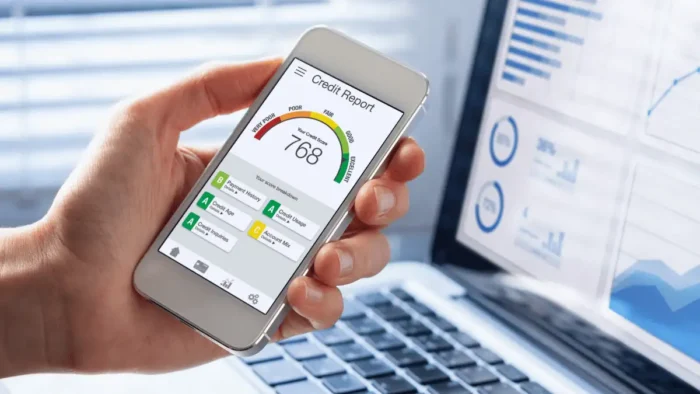Sufficient working capital is indispensable for every business. It helps maintain the company’s operations and meet its short-term financial needs. Unfortunately, problems with working capital can arise at any stage of the business.
Companies often need external financing to have enough funds to achieve their business goals. However, an entrepreneur starting a new venture may struggle to secure traditional business financing. That’s when personal loans come in.
It’s a good alternative financing option for business owners who need additional funds for their business. Yet, as with anything to do with business and finance, considering the benefits, risks, and how the process works is crucial before applying for a personal loan.
How a Personal Loan for Business Works
Like business loans, personal loans are disbursed in a lump sum. That means you receive the funds once upfront and pay them in fixed amounts plus interest for the loan’s duration. The term or amount of time you must make payments can range from one to seven years or more, depending on the lender.
Compared to traditional business financing, the process of personal loans for business is more straightforward and lenient. Before lenders approve your business loan, you must provide a solid business plan. Meanwhile, this requirement doesn’t apply to personal loans.
Since the loan is personal, you have complete discretion over using the funds you receive. That means you can use it for any purpose, including business expenses. However, some lenders may impose business use restrictions, so verify this before submitting your personal loan application.
Most personal loans are unsecured, meaning you don’t have to provide collateral to qualify. Alternatively, lenders often examine the following factors to approve your loan application:
- Good credit score: Lenders have different minimum credit score requirements for personal loans. Usually, you need a minimum score of 610 to 640 to get approved for a personal loan.
- Low debt-to-income (DTI) ratio: A healthy balance between debt and income makes you an attractive borrower. Although a DTI ratio of 43 percent is acceptable for lenders, others favor below 36 percent.
- Proof of income and employment: Lenders want to ensure you can repay your debts and new loan. They will require proof of income and employment to verify your ability to fulfill repayment obligations.
When It Makes Sense To Fund Your Business With a Personal Loan
Although easy to secure, personal loans are not always the best option to fund your business. It can result in more harm than good when not used properly. Here are some instances where securing a personal loan could make sense for your business:
Your business has a limited financial history
Your chance of getting approved for business-specific funding is slim when you have a limited financial history. Lenders usually require a demonstrated record of the company’s revenue, strong credit history, and minimum business length.
Meanwhile, your company’s financial history doesn’t influence your eligibility for a personal loan. Hence, it will be a good financing option if you’ve just started your business. You can easily qualify for it with an excellent credit score and steady income.
You can’t pledge some form of collateral
Collateral is a common loan requirement for most types of business financing. Suppose you can’t pledge some form of collateral. In that case, a personal loan makes better sense. Since personal loans are usually unsecured, you won’t need to offer collateral to get approved.
Your business only needs a modest sum
Small loans yield lower interest rates. Since it costs banks the same amount of work, they rarely offer business loans in small amounts. If they do, lenders typically charge higher interest rates. A personal loan can be viable if your business only needs $50,000 or less.
You need fast and flexible financing
The application process for business loans often requires extensive documentation. That will take a significant amount of time to complete. If you need fast and flexible financing for your business, a personal loan gives you access to quick cash.
The documentation required for personal loans is usually minimal. Once you meet the loan requirements, you can receive the funds within a week. The funds can be available as soon as the next business day or within the day when you apply online.
Critical Considerations Before Funding Your Business With a Personal Loan

There are numerous reasons to fund your business using a personal loan, depending on your needs and situation. To help you determine if a personal loan is the right choice for your business, here are essential factors to consider:
How can it benefit your business?
Understanding how a personal loan can benefit your business can help you make an informed decision. If you want to take advantage of the following benefits, funding your business with a personal loan can be a wise decision:
- You can allocate the funds based on your business-specific needs.
- You won’t put your personal or business assets at risk in case of a default.
- You may qualify for more competitive rates than business loans.
- You can boost your credit score and chances for future business loan approval.
What are the potential risks involved?
Although personal loans offer convenient access to funds, they also pose risks when used for business financing.
For instance, it involves blending your personal and business funds. Suppose your company fails to keep up with the loan payments. You bear the responsibility of paying them. Even if the loan is unsecured, the lender or debtor can pursue legal action.
Many entrepreneurs register their business as a limited liability company (LLC). This strategy helps protect their assets in case the company faces a lawsuit. That being the case, starting an LLC is a good idea if you’re a new business owner.
If you decide to do so, Texas is one of the best places to start an LLC due to its business-friendly environment. Among the essential things you must consider is learning how to choose a Registered Agent in Texas. It’s a requirement when registering your business as an LLC.
Forming an LLC enables you to structure your company as a separate legal entity. However, you can risk losing the limited liability protection if you use personal loans for your business. That means you’re still personally liable for paying the loan even if you use it for business purposes.
How much interest rates can you afford?
The interest rates the lender charges can significantly impact the total cost of the loan. Remember, the more money you borrow, the higher your repayment in interest and fees will be.
Ensure to calculate the interest and loan amount you can comfortably afford. Shopping around multiple lenders can help you find the interest rate that suits you best financially.
What is your current credit score?
Lenders view applicants with a low credit score as a credit risk, causing them to charge higher interest rates on the loan.
Thus, before applying for a personal loan, consider checking where your credit score currently stands. You have a better chance of getting loan approval at a lower interest rate and better terms if you apply with an excellent credit score.
What’s your ability to make timely repayments?
You must ensure you can make timely repayments before obtaining a personal loan. Otherwise, you can face late payment charges and additional financial risks, such as a damaged credit score. Note that you must pay the loan regardless of whether your business succeeds.
How do you plan to use the borrowed funds?
Although there’s no restriction on how you use the loan, it’s crucial to determine the purpose of securing a personal loan. Doing so can help you stay on track and establish a repayment strategy that matches your financial goal and situation.
Make the Right Financial Decision for Your Business
The most suitable financing option depends on your business’s requirements, financial background, and qualifications. Considering all these factors before committing to any personal loan can help you decide what makes the most sense for your business financially.
Likewise, establishing a repayment plan is critical regardless of the option you intend to fund your business. Doing so helps prevent further financial risks or surprises down the line. Therefore, ensure you have a strategy for making timely payments and managing the loan effectively while growing your business.





